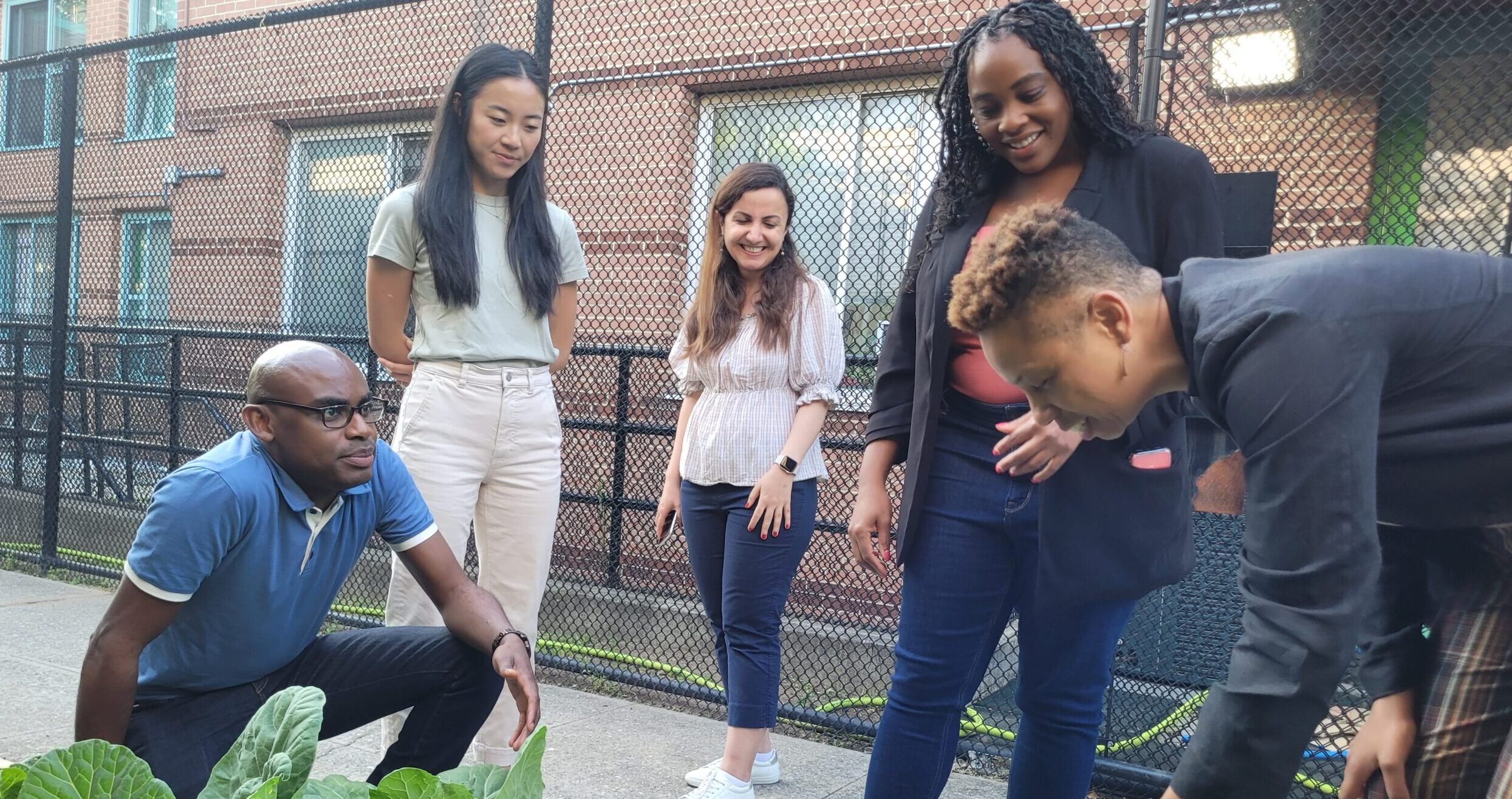Two Human Ecology graduate students spent this past summer in New York City as part of a summer fellowship through the Action Research Collaborative (ARC), learning how researchers and communities can work together to effect change. The fellowship offers a blend of academic mentorship from ARC-affiliated faculty and practical experience working with community partners on action research projects based in the city. This year’s fellows were Samantha De Leon Sautu, a Ph.D. candidate in human development, and Ruyu Liu, a Ph.D. candidate in community nutrition.
“My fellowship with the ARC has been a great opportunity for me to train and learn how to build relationships with communities and stakeholders,” said De Leon Sautu, who works with Marlen Gonzalez, assistant professor in psychology and ARC faculty member, in the Life History Lab, which studies how a person’s developmental context shapes their biology and who they become as adults.
De Leon Sautu said that while much of her work in the lab focuses on quantitative research, the summer fellowship allowed her to explore qualitative and community-based research. She contributed to an ongoing ARC project that examines the needs of families residing in transitional housing. A Spanish speaker, she translated research questions and conducted interviews with Spanish-speaking residents to understand what support services could be beneficial to their families.
Liu worked on an ongoing community engagement project through the Figueroa Interdisciplinary Group (FIG) Research Lab. The lab, founded by Roger Figueroa, assistant professor in social and behavioral science in nutrition, focuses on developing strategies to promote nutrition security and to address health disparities through a socio-ecological lens. Its current projects evaluate food security, nutrition security and the efficacy of food pantry-based nutrition programs in New York City.
Liu visited food pantries — or research sites — across the city, observing how pantry partners packed and distributed produce. Her observations will inform how researchers from the FIG lab can best interact with and evaluate the efficacy of the nutrition programs at these pantries.
In addition to working on their own community projects, the fellows also observed faculty researchers building relationships with community partners. They visited partner sites such as the Springfield Community Garden in Queens and the Boys & Girls Club of Harlem to see how researchers and community stakeholders collaborate effectively.

ARC graduate summer research fellows visit Springfield Community Garden.
“It was important to see projects and partnerships in different phases; some where things are wrapping up,” said Liu. “We also saw projects that were at an earlier stage and observed conversations where future collaborations were considered. That was really insightful to see — how academic and community partners come to be and how you can start conversations like that.”
Echoing similar sentiments, De Leon Sautu emphasized the unique knowledge community partners bring to collaborative projects.
“As someone who comes from the sciences or the clinical world, we’re trained to feel like we have indisputable knowledge,” she said. “But community knowledge is just as much or more important. It’s good to let other people take the lead in these projects.”
Neil Lewis Jr., associate professor of communication in the College of Agriculture and Life Sciences (CALS) and ARC co-director added, “Teaching future generations of researchers about the importance of collaborating with the communities where we conduct research is integral to ARC’s mission.”
Tashara Leak, associate professor in the Division of Nutritional Sciences and associate dean in CHE, who co-founded and co-directs ARC with Lewis, said, “We want to emphasize the importance of working with community partners from the beginning of the research process, not as an afterthought. Through fellowships like this one, we hope to equip the next generation of researchers and academics with the skills to work effectively and collaboratively within the community.”
____
Natalia Rommen, Communications Specialist





